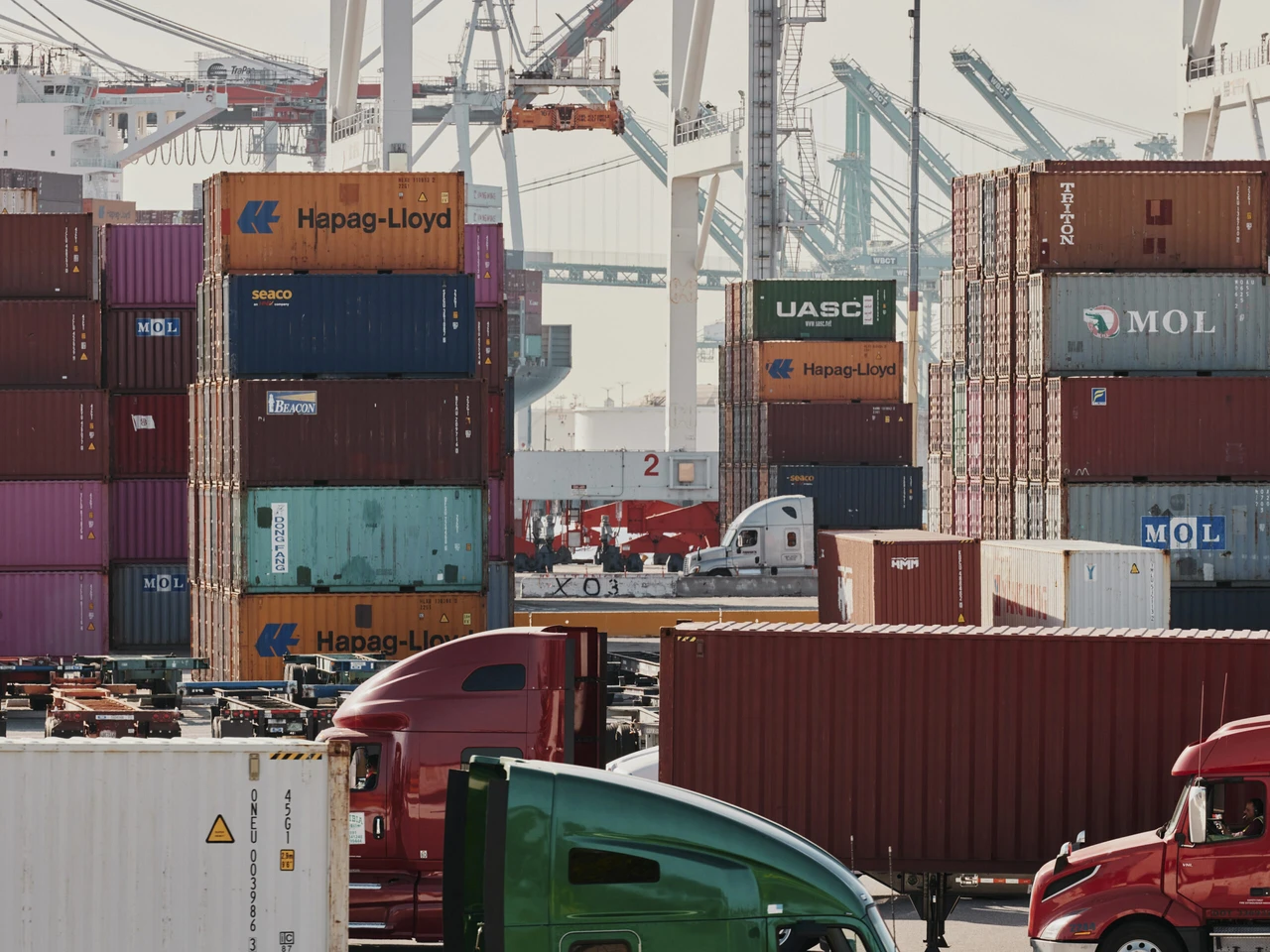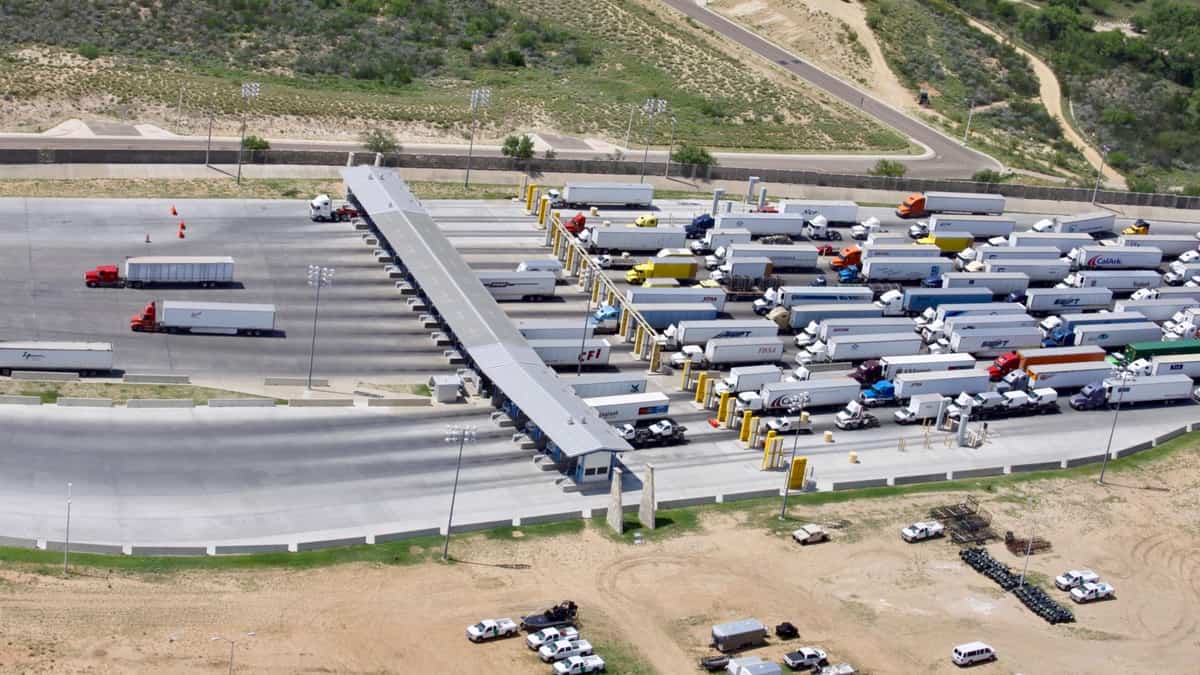Exploding pagers sound alarm: Stark warning for global supply chain
 Containers at the Port of Los Angeles in San Pedro, Calif., Nov. 1, 2023. The attacks on Hezbollah in Lebanon are likely to generate greater momentum for moving factory production closer to home. (Adam Amengual/The New York Times)
Containers at the Port of Los Angeles in San Pedro, Calif., Nov. 1, 2023. The attacks on Hezbollah in Lebanon are likely to generate greater momentum for moving factory production closer to home. (Adam Amengual/The New York Times)
On Sept. 18, several people were killed and hundreds injured when multiple wireless devices detonated in Lebanon. Lebanese authorities blamed Israel for the incident, but Israel has not yet issued a statement on the matter.
The lethal detonation of hand-held pagers and walkie-talkies used by Hezbollah militants this past week in Lebanon demonstrated powerful spycraft, but it also raised questions about a gaping vulnerability in the global supply chain.
‘Beyond powers of governments, corporations’
According to experts, the chain is astonishingly complex. So complex that it is probably beyond the powers of governments, corporations and other interested institutions to police. Even the most sophisticated participants are often unclear on who they are relying on for critical parts and raw materials, or where the risks lie.
The pandemic highlighted a significant weakness in global supply chains: the longer and more complex a product’s journey from raw materials to consumer, the more vulnerable it is to disruptions. These disruptions can lead to delays and increased costs.
Now there’s a potent yet related concern: The more complicated the journey, the greater the exposure to mischief.
Every movement along the way and every additional company brought into the manufacturing process represents an opportunity for those pursuing violent agendas to insinuate themselves into the works and weaponize the product.
“Companies must decide which level of security must be implemented in their supply chains,” said Hannah Kain, the CEO of ALOM, a global supply chain company. “We just moved several notches out on the paranoia scale.”

Lebanon attacks will most likely accelerate supply chain changes
In recent years, a growing group of labor activists, politicians and critics of liberalized trade has urged American companies to move production back home, or at least closer to the domestic market.
So-called reshoring and nearshoring have been advanced as a means of limiting reliance on faraway factories – especially those in China – while insuring against the perils of international shipping.
The reality that international supply chains are susceptible to being penetrated by those waging war is bound to boost it further.
National security risk concerns focused on specific high-risk situations
Much of the world is dependent on factories in China for critical items including face masks, ingredients for critical medicines, and parts for ventilators and other medical devices.
- A potential invasion of Taiwan by China could significantly disrupt the global semiconductor supply chain, given Taiwan’s role as a major producer of advanced computer chips.
- Faced with international sanctions following its attacks on Ukraine, Russia has cut shipments of energy to Europe.
- In the United States, those who view China as a threat to national security have warned that Chinese-made telecommunications and electrical gear could be a Trojan horse for crippling attacks on basic U.S. infrastructure.

Hidden dangers: How even everyday commerce can be targeted
At ports around the globe, the volume of goods being moved in shipping containers is so vast that no authority can possibly inspect more than a fraction.
In the wake of the Lebanon attacks, politicians are likely to face pressure to extend the push for reshoring and nearshoring beyond the most strategically vital goods like computer chips and electric vehicles.
New policies may broaden the drive to concentrate industry in the United States and in friendly countries that can offer assurances of armoring supply chains against outside intervention.
Trump, Biden push for relocation of supply chains closer to home
The Trump administration affixed across-the-board tariffs on Chinese goods, a policy extended by the Biden administration. The Biden administration has lavished tens of billions of dollars in subsidies on companies that are constructing computer chip plants and electric vehicle factories in the United States. The government is also looking to spur the production of active ingredients for pharmaceuticals.

Many US companies already reeling in production
Product shortages and spiking shipping costs during the pandemic caused major companies including Walmart and Columbia Sportswear to shift some of their production from Asia to countries such as Mexico and Guatemala.
The land port at Laredo, Texas – a hub of trade between the United States and Mexico – eclipsed the docks of Southern California, long the gateway for Asian-made factory goods.
Faced with the uncomfortable possibility that their foreign factories could be susceptible to rogue actors, American multinational companies may move more aggressively to shift production to countries where the risks are less. In the cost-benefit analysis that has long propelled factory jobs out of the United States to countries where labor is cheaper and regulations lighter, the value of making goods at home just went up.

Contrary to some premature obituaries, globalization is not dying
Abandoning international trade would be expensive and fraught with disturbance. Instead, globalization is being reconfigured, with new value placed on cutting the distance between factories and markets.
All of this has come in response to the growing sense that the United States must make sure it has ample stocks of critical elements, rather than entrusting its fate to supply chains spanning oceans. For those inclined to this view, the exploding pagers ultimately delivered a flashing alert.



